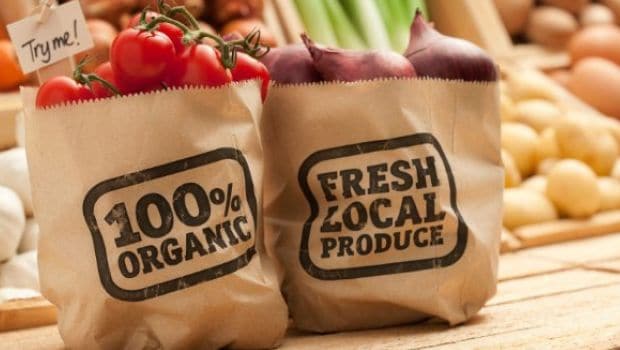In recent times, there's been a noticeable shift in people's awareness about the benefits of chemical-free food. More and more individuals are willing to make organic food a part of their lifestyles. In our fast-paced modern lives, the consumption of canned or preserved foods is on the rise. Nutritionally, this trend has adverse effects on our bodies. These chemicals and preservatives are not only harmful but also compromise the taste of our food. The argument for embracing organic food is straightforward and compelling. Organic agriculture prioritises clean chemical-free food. For our diet, organic food is said to provide more nutrition, hygienic and safe food, and thereby, more health benefits. We all know of organic food. You must have heard and read about it countless times. But do you really understand what organic food is?
Also Read: Want To Grow Organic Food At Home? Here Are 5 Foods To Start With
What Is The Meaning Of Organic Food?
Organic foods are cultivated without the use of chemical fertilizers, pesticides and genetic modifications. They avoid industrial solvents and food additives, relying instead on natural processing techniques. As a result, organic foods offer additional advantages such as higher antioxidant levels and fewer pesticide residues.
Apart from canned and processed food, even those fresh foods that have been cultivated with the help of chemical fertilisers, laced with pesticides and injected with hormones and other additives to increase their shelf life are not organic.
Now we know what is organic food, let's learn about the various health benefits it provides.
Also Read: Organic Food Industry: 4 Reasons Why It Will Boom In Coming Years

Organic food is free of chemicals and other additives. Image Credit: iStock
Is Organic Food Better? Here Are Some Health Benefits Of Eating Organic Food:
1. No Harmful Chemicals:
Conventional farming methods often involve the use of pesticides, fertilizers, and preservatives, which can harm human health. Organic food is produced without these artificial compounds, making it safer for consumption.
2. Boosts Antioxidant Intake:
According to a report by ANI, researchers have concluded that individuals who switch to organic fruits, vegetables, and cereals can benefit from 20 to 40 per cent more antioxidants. This study, published in the British Journal of Nutrition, revealed that organic crops contain higher concentrations of antioxidant compounds. Antioxidants are essential for combating oxidative stress and protecting us from various illnesses.
3. Nutritional Benefits of Organic Food:
The way organic crops are produced contributes to their enhanced nutritional value. Nutritionist Anshul Jaibharat asserts, "Research has shown that organically-grown whole foods, such as fruits and vegetables, contain more potent vitamins and minerals, including vitamin C, iron, magnesium, and phosphorous."
4. No Artificial Hormones or Antibiotics:
Modern farms often use hormones and antibiotics in livestock to maximise productivity, which can enter the human body through products like meat, milk, and eggs. Organic farming avoids the use of artificial hormones and antibiotics, reducing health risks.
5. Escape From Artificial Additives
Nutritionist Anshul Jaibharat shares that an organic label on packaged foods guarantees that the products do not contain artificial colours, flavours, preservatives, or additives - ingredients our bodies can do without.
It's clear that the many health benefits of organic food make it the right choice but how important it is to eat organic food? Let's find out
Is Organic Food Really Necessary? Should You Eat Only Organic Food?
Dr Snehal Adule, in a post on her Instagram handle, said that it's true "organic foods can offer some benefits. But they aren't necessarily a giant leap above in terms of nutrition." She clarified that if you can afford the costlier organic food, it's great. But if you can't, you can still maintain a healthy diet. How? You can eat regular fruits and vegetables by washing the food and your hands well. This can remove the layer of pesticides and other chemicals on the food.
Adding organic food to your diet is the best but "Being healthy is still possible without spending a lot on organic food," concludes Dr Snehal Adule.
About Neha GroverLove for reading roused her writing instincts. Neha is guilty of having a deep-set fixation with anything caffeinated. When she is not pouring out her nest of thoughts onto the screen, you can see her reading while sipping on coffee.










